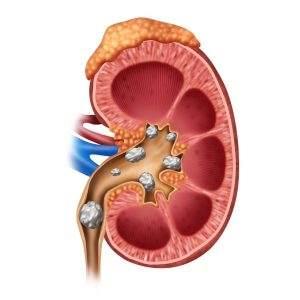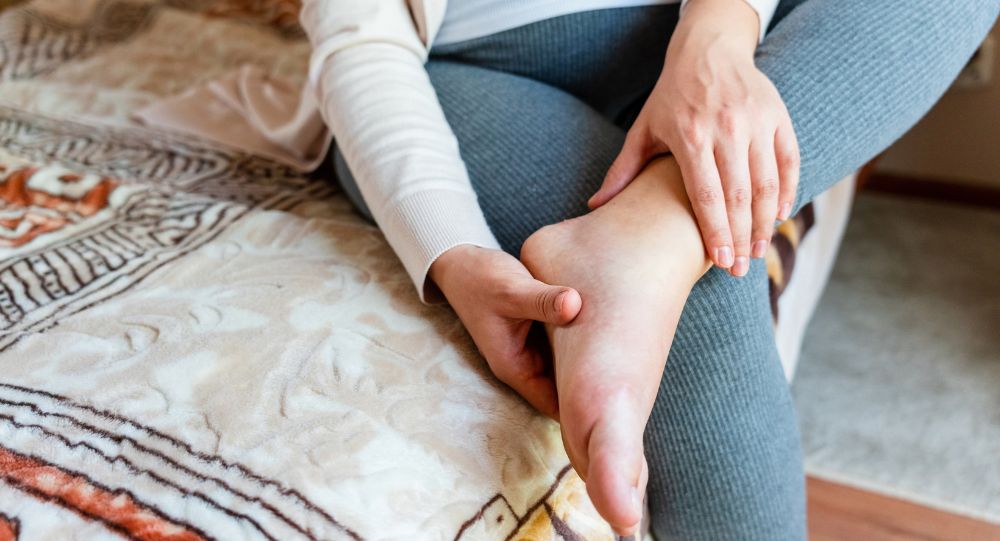Pregnancy brings many physical changes—some beautiful, some challenging, and some completely unexpected. For a small percentage of pregnant individuals, kidney stones are one of those unexpected and painful surprises. While relatively rare during pregnancy, kidney stones can be especially concerning because of the need to protect both the parent and the developing baby.
At the Kidney & Hypertension Center, we understand how unsettling it can be to experience kidney stones while pregnant. Our goal is to help you understand the symptoms, risks, and safe treatment options available, so you can feel informed and supported every step of the way.
What Are Kidney Stones?
Kidney stones are hard, crystal-like deposits made of minerals and salts that form in the kidneys. They can vary in size, from a grain of sand to a pebble or even larger. These stones can block the flow of urine, cause inflammation, and result in significant pain.
While kidney stones are relatively uncommon during pregnancy, the physiological changes that occur, such as increased calcium excretion and decreased bladder emptying, can raise the risk slightly, especially in the second and third trimesters.

Symptoms of Kidney Stones During Pregnancy
The symptoms of kidney stones while pregnant are similar to those in the general population, but they can be more difficult to distinguish due to overlapping pregnancy-related discomforts.
Common signs include:
- Sharp pain in the side, back, or lower abdomen (can be one-sided)
- Pain that comes and goes in waves
- Blood in the urine (hematuria)
- Nausea or vomiting
- Increased urinary urgency or frequency
- Painful urination
- Fever or chills (if infection is present)
Because these symptoms can resemble other pregnancy complications, such as preterm labor or a urinary tract infection (UTI), it’s essential to seek medical care promptly for proper diagnosis.
What Causes Kidney Stones During Pregnancy?
Several factors may increase the likelihood of developing kidney stones during pregnancy:
- Hormonal changes that slow the flow of urine, allowing minerals more time to form crystals
- Increased calcium in the urine, especially in late pregnancy
- Dehydration, which concentrates minerals in the urine
- Dietary factors, such as high oxalate intake (from foods like spinach, nuts, and tea)
- Genetics or a history of kidney stones prior to pregnancy
Are Kidney Stones Dangerous During Pregnancy?
While kidney stones themselves aren’t typically dangerous to the baby, complications can arise if they cause:
- Obstruction of the urinary tract, leading to infection or decreased kidney function
- Infections like pyelonephritis (a serious kidney infection), which can increase the risk of preterm labor
- Persistent pain and stress, which can affect the pregnant individual’s well-being and lead to additional medical interventions
Early identification and proper treatment can help prevent these complications.
Diagnosing Kidney Stones Safely During Pregnancy
Diagnosing kidney stones while pregnant requires extra caution to protect the baby. Common diagnostic tools include:
- Urinalysis, to check for blood, infection, or crystals
- Ultrasound, which is safe during pregnancy and can help detect stones and assess for urinary obstruction
- Blood tests, to assess kidney function and rule out infection
In rare cases, other imaging techniques like MRI may be considered, but CT scans (which use radiation) are typically avoided unless absolutely necessary.
Treatment Options for Kidney Stones While Pregnant
Most kidney stones that occur during pregnancy can be managed conservatively, meaning without surgery. Treatment depends on the size, location, and symptoms of the stone.
Conservative Management
- Hydration: Drinking plenty of water helps flush the urinary system and may help pass the stone naturally.
- Pain management: Acetaminophen (Tylenol) is generally considered safe during pregnancy, but other medications may be restricted.
- Monitoring: Small stones that aren’t causing severe symptoms may just need watchful waiting with close follow-up.
Interventional Procedures
If the stone causes infection, severe pain, or obstructs the urinary tract, intervention may be necessary. In pregnancy, the options are limited to the safest approaches, such as:
- Ureteral stent placement to relieve blockage and allow urine to flow
- Nephrostomy tube to drain the kidney externally
In rare cases, minimally invasive surgery may be performed in the second trimester by a specialist, but this is typically avoided unless absolutely necessary.
Every treatment decision is made collaboratively, taking into account both maternal and fetal safety.
How to Prevent Kidney Stones During Pregnancy
If you’ve had kidney stones before or want to reduce your risk while pregnant, here are some helpful steps:
- Stay well-hydrated: Aim for at least 8–10 glasses of water per day, unless your doctor tells you otherwise.
- Limit high-oxalate foods (like spinach, beets, rhubarb, and nuts) if advised by your doctor
- Reduce salt and added sugar, which can contribute to stone formation
- Eat a balanced diet rich in calcium from dietary sources, not supplements, unless directed by your doctor
- Stay active if you’re able, as regular movement supports healthy digestion and kidney function
Partnering in Your Kidney Health
If you’re pregnant and experiencing symptoms of kidney stones, your OB-GYN or maternal-fetal medicine specialist will typically guide your initial care. However, if you have a history of kidney stones, underlying kidney conditions, or ongoing issues with high blood pressure, the Kidney & Hypertension Center can provide expert support as part of your long-term health team.
If you’re looking for specialized kidney or hypertension care before, during, or after pregnancy, click here to request an appointment with our team.




